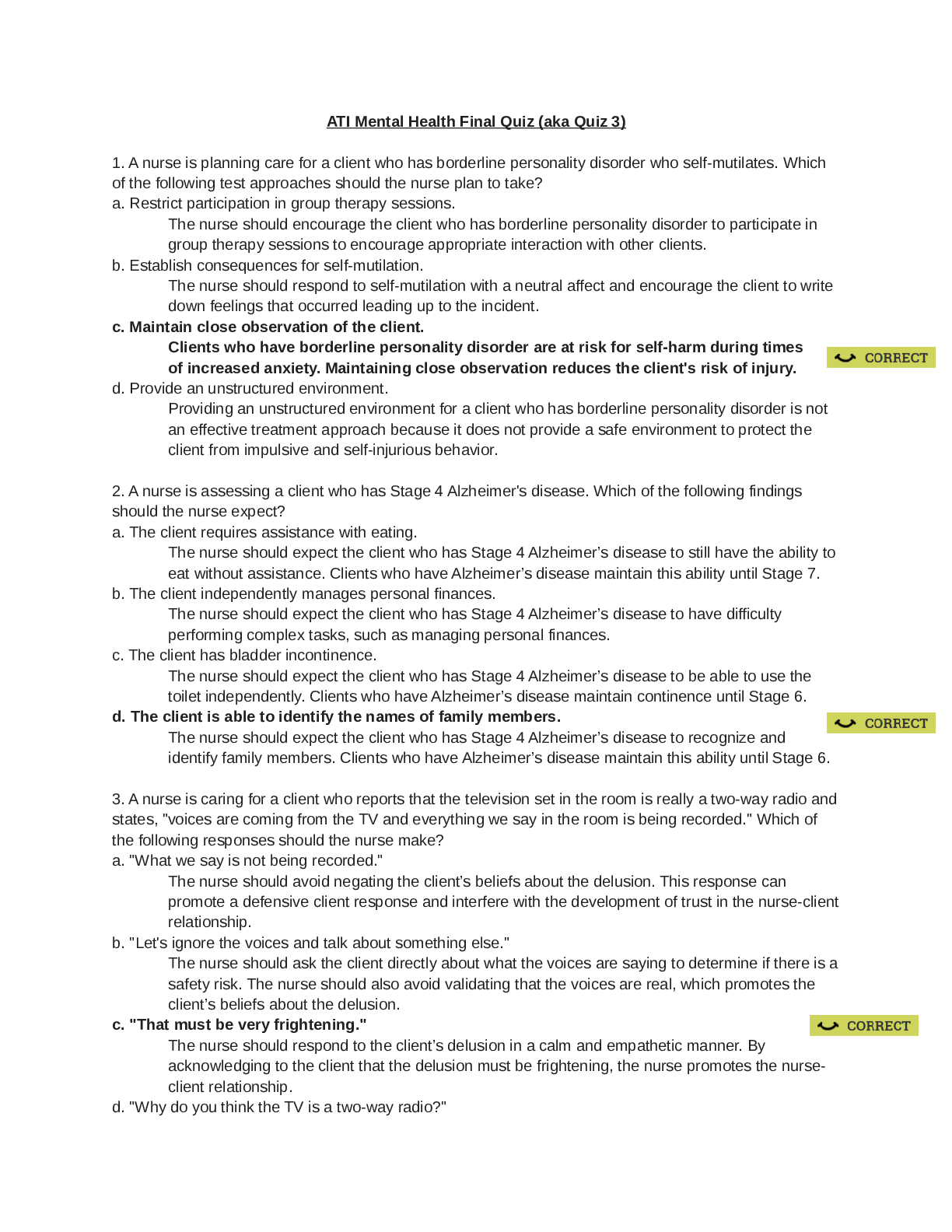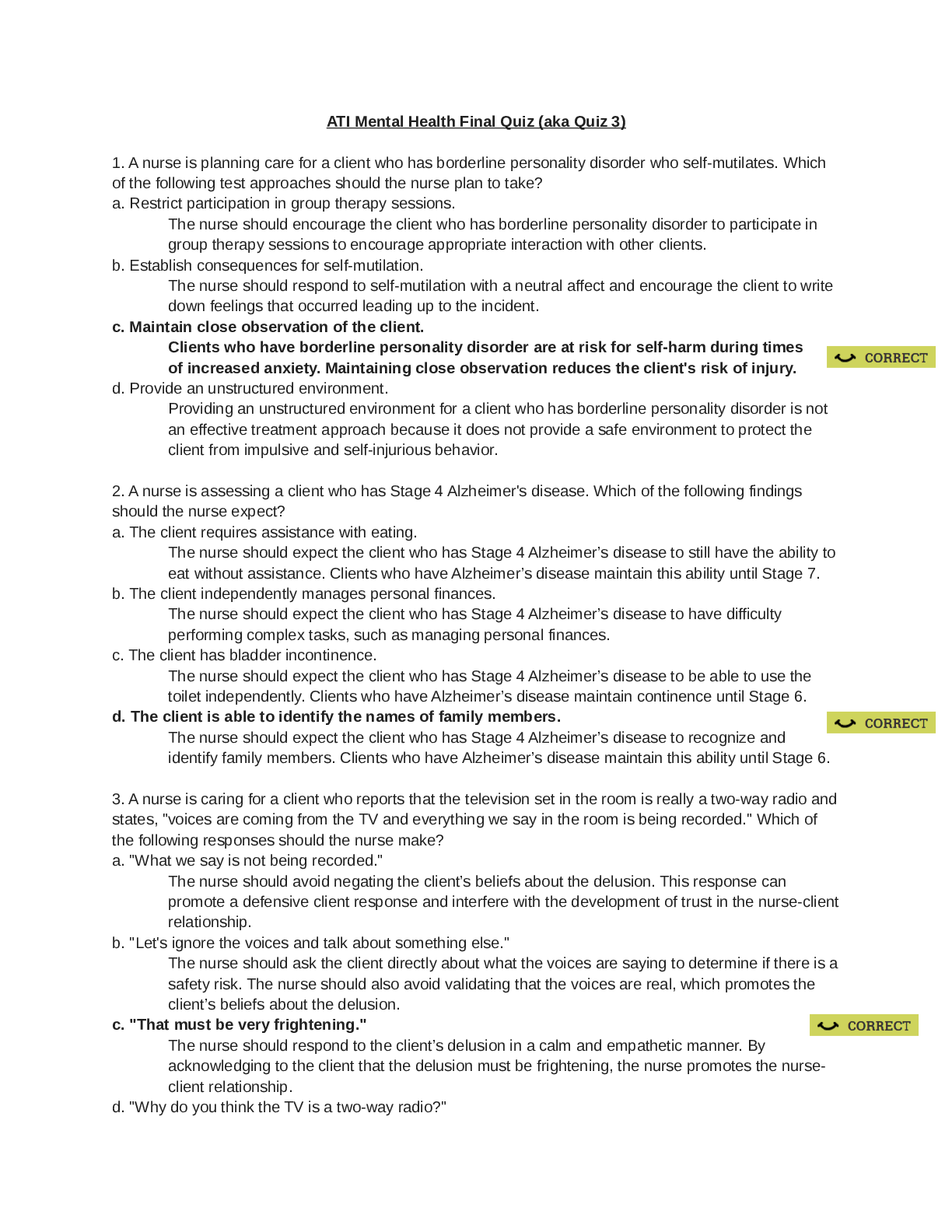ATI Mental Health Final Quiz (aka Quiz 3)
Course
Music
Subject
Chemistry
Category
ATI Proctored
Pages
18
Uploaded By
ATIPROS
Preview 4 out of 18 Pages


Download all 18 pages for $ 9.50
Reviews (0)
$9.50
